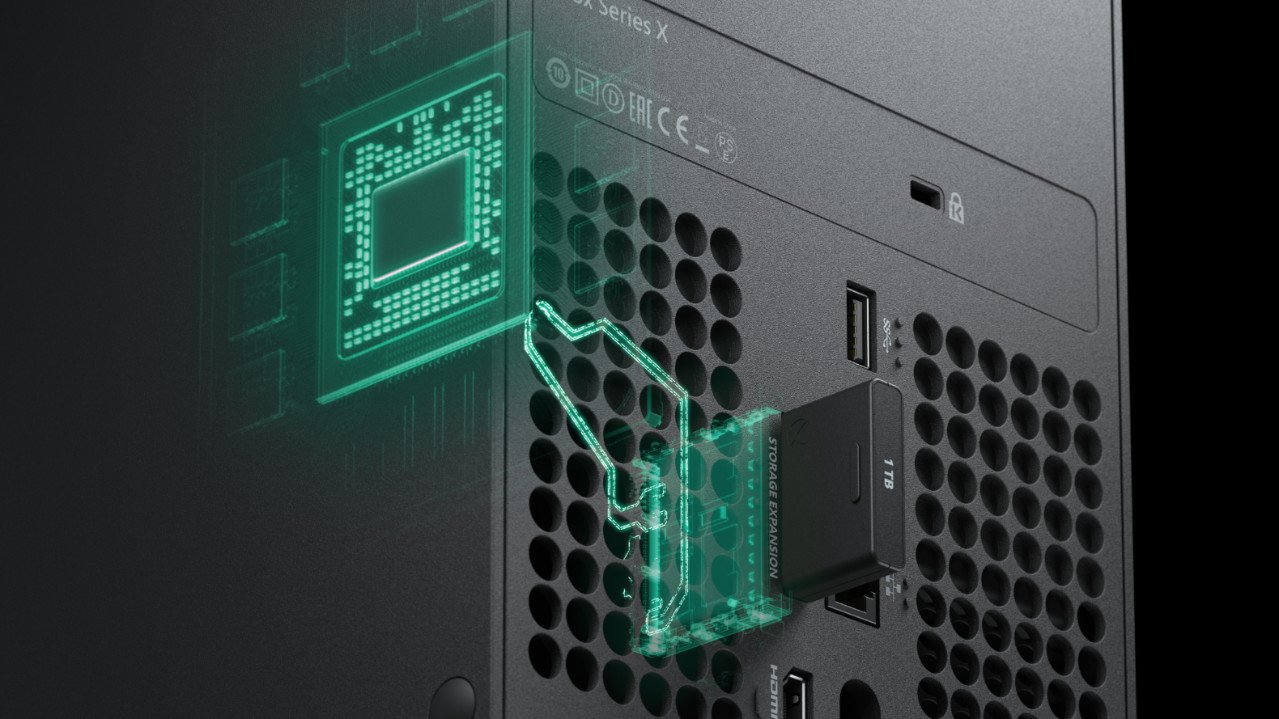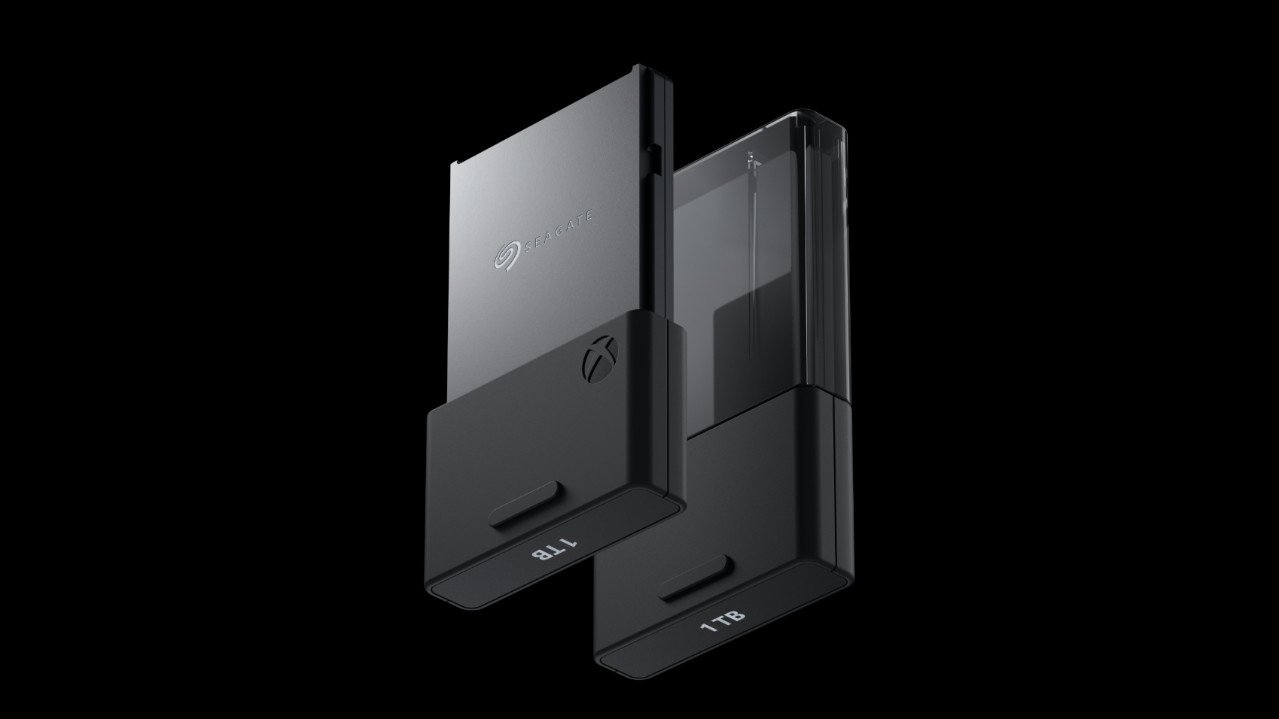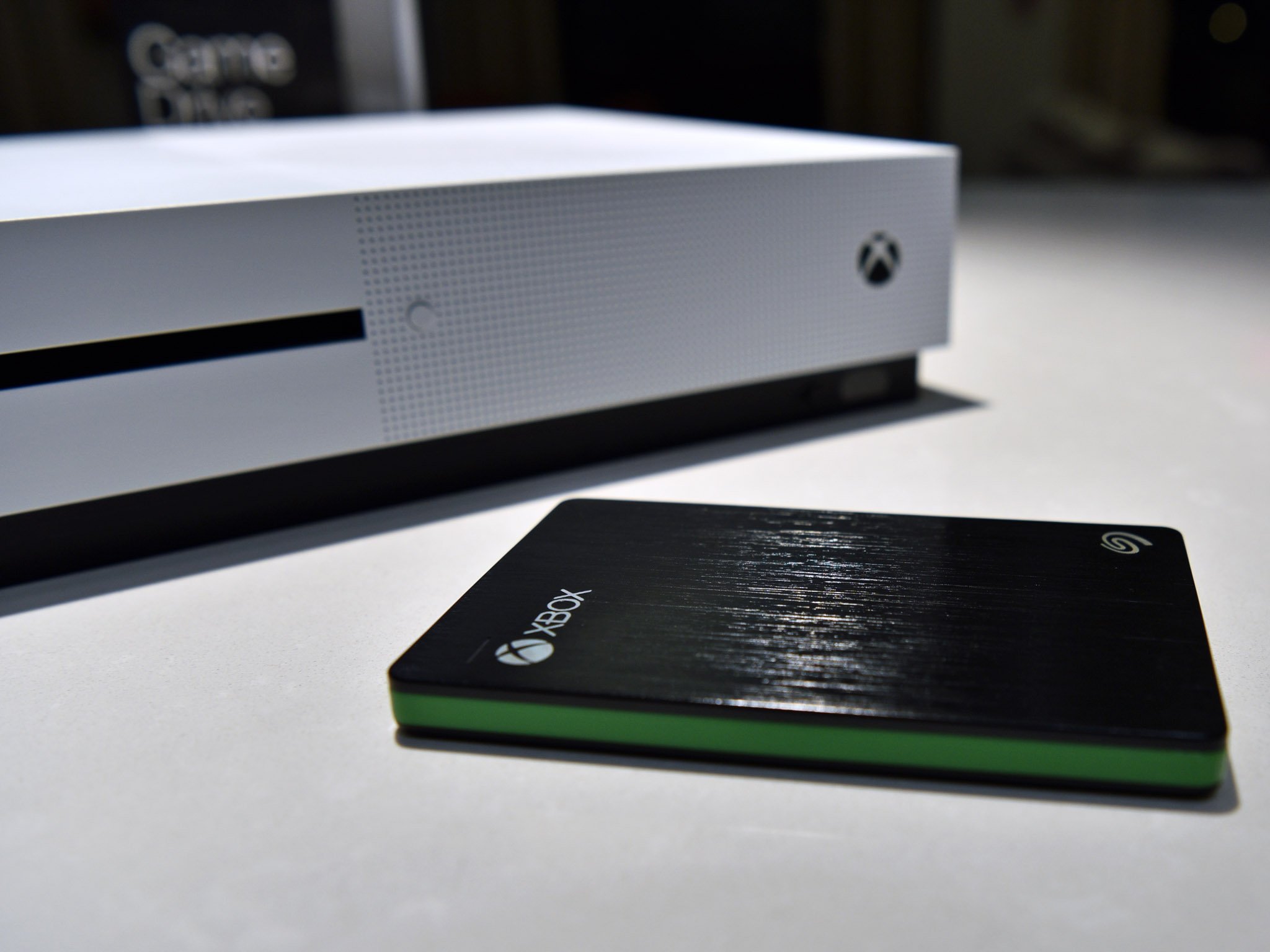Xbox Series X game storage explained: USB HDDs, Xbox Velocity Architecture, NVMe, and Seagate expansion cards
The Xbox Series X has an all-new storage system for your games that goes far beyond being mere storage. Here are the details you need to know.
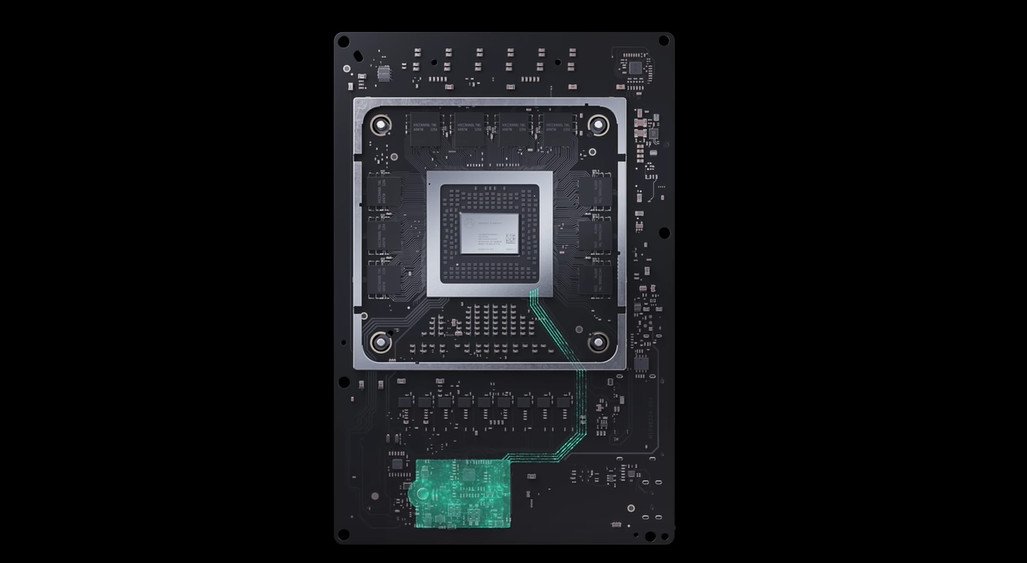
All the latest news, reviews, and guides for Windows and Xbox diehards.
You are now subscribed
Your newsletter sign-up was successful
The Xbox Series X has been (almost) fully-detailed by Microsoft, giving us even more deep details into what next-gen looks like. 12TF of graphics power, combined with rapid NVMe storage, game state suspension for multiple titles simultaneously, and high-end PC-like games performance, with potential support for 120 frames per second.
One area that Microsoft is really expanding upon is storage solutions, which come with an array of benefits beyond simply storing your games. The new NVMe storage solution is so fast that it won't simply store your games, but it'll also power them. But what does that mean for your existing USB HDDs and so on? How much will this all cost? Here's what we know so far.
Xbox Series X storage specs
| Category | Spec |
|---|---|
| Standard size | 1TB |
| Type | Custom NVMe PCI-e 4.0 |
| Speed | 2.4 GB/s (Raw), 4.8 GB/s (compressed) |
| Expansion | Custom Seagate 1TB expansion cards |
Benefits of NVMe SSD storage
For the Xbox Series X, Microsoft is using customized NVMe SSD technology to boost the speed of its system by orders of magnitude over the mechanical HDDs of previous console generations. The first and most obvious benefit here is loading speeds. Microsoft has already demonstrated how State of Decay 2 loads in a mere 6-7 seconds when compared to the Xbox One architecture, which takes anywhere up to a minute.
This will also benefit systems in-game, for things like fast travel when moving to a new area within an existing open world, or loading into a new level. Everything will be that much speedier, putting you back into the game faster than any console has been able to achieve.
Beyond loading speeds, though, Microsoft is developing new methods developers can leverage to utilize the SSD to reduce CPU overheads. Using what Microsoft is calling DirectStorage, developers on Xbox Series X (and soon, PC, as part of DirectX), developers can offload asset streaming CPU operations to the SSD, reducing the load on the CPU by a large amount. Microsoft describes it as follows.
DirectStorage is an all new I/O system designed specifically for gaming to unleash the full performance of the SSD and hardware decompression. It is one of the components that comprise the Xbox Velocity Architecture. Modern games perform asset streaming in the background to continuously load the next parts of the world while you play, and DirectStorage can reduce the CPU overhead for these I/O operations from multiple cores to taking just a small fraction of a single core; thereby freeing considerable CPU power for the game to spend on areas like better physics or more NPCs in a scene. This newest member of the DirectX family is being introduced with Xbox Series X and we plan to bring it to Windows as well.
The CPU in the Xbox Series X will be able to dig deeper than previous-gen consoles due to the NVMe storage techniques being introduced, allowing for more complex effects techniques and more A.I. operators in a single area. The potential is rather staggering, although we won't know what kind of results we'll get as end-users until developers get their hands on it and start pushing the technology.
New Xbox Velocity Seagate storage cards
Following on from our previous info, Microsoft is indeed adding custom-made expansion cards to the Xbox Series X, built in partnership with Seagate. It remains to be seen if other storage manufacturers will get in on the action, but Microsoft and Seagate have a lengthy history of working together on custom Xbox storage solutions.
All the latest news, reviews, and guides for Windows and Xbox diehards.
At launch, these cards will start at 1TB, although Microsoft says more sizes are on the way in the future.
Can I still use my USB HDD or SSD?
The downside is that your existing USB-based HDD or SSD will be limited in its functionality on the Xbox Series X. We have USB-A ports on the Xbox Series X, but games designed for the Xbox Series X, with ray-tracing and so on, will expect the high-speed NVMe drive to be present. You will be able to run non-upgraded Xbox One games from an external drive, but you'll want to reserve your Xbox Series X storage for all those shiny new games. Here's what Microsoft had to say about it.
Built in partnership with Seagate, this 1 TB custom storage solution expands storage capacity of Xbox Series X with the full speed and performance of the Xbox Velocity Architecture Previous generation Xbox titles can still be played directly from external USB 3.2 hard drives. However, to receive all the benefits of the Xbox Velocity Architecture and optimal performance, Xbox Series X, optimized games should be played from the internal SSD or Xbox Series X Storage Expansion Card.
How much will the expansion cards cost?
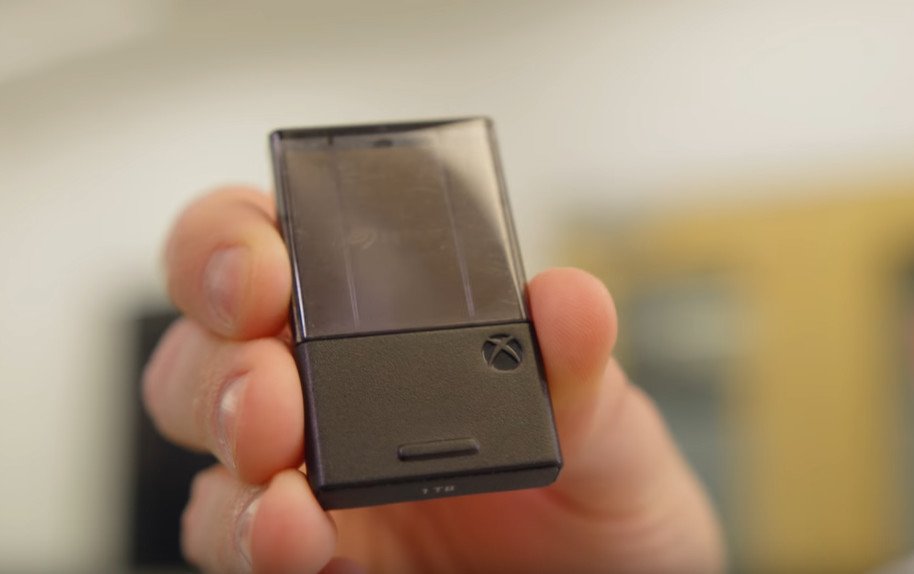
Right now, there's no information on exactly how much these cards will cost. If they truly are based on the CFExpress standard we've previously heard about, they could be fairly expensive. Current CFExpress cards run into the hundreds of dollars, however, Microsoft could have done some kind of deal with Seagate and the CFExpress Compact Flash consortium for a bulk order to perhaps bring the price down.
There's simply no way to know until Microsoft and Seagate offer some more information, but I wouldn't expect them to be cheap. At the same time, Microsoft will want to price these expansion cards within a reasonable range. The RRP on a far-slower USB-based Seagate Xbox SSD is currently over $200 for 1TB, so it's fair to expect it will be around that price, or even higher.
Xbox Series X is a speedy boi
The Xbox Series X is shaping up to be an incredible console, by the looks of things. The storage solutions might be expensive, but the benefits will be felt across the entire system, with boosts to loading speeds, boosts to game performance in general, and more overheads for developers to play with. The proof will be in the games, and we'll have to wait a little longer to find out about those, but at least for now, you can rest assured that the Xbox Series X is going to be a speedy boi.
Xbox Series X/S
Main
- Xbox Series X: Everything we know
- Best games coming to Xbox Series X/S
- List of Xbox Series X specs
- What is the Xbox Series X release date?
- How much does Xbox Series X cost?
- Why you can't preorder Xbox Series X yet
- Best Xbox Series X Headsets

Jez Corden is the Executive Editor at Windows Central, focusing primarily on all things Xbox and gaming. Jez is known for breaking exclusive news and analysis as relates to the Microsoft ecosystem — while being powered by tea. Follow on X.com/JezCorden and tune in to the XB2 Podcast, all about, you guessed it, Xbox!
